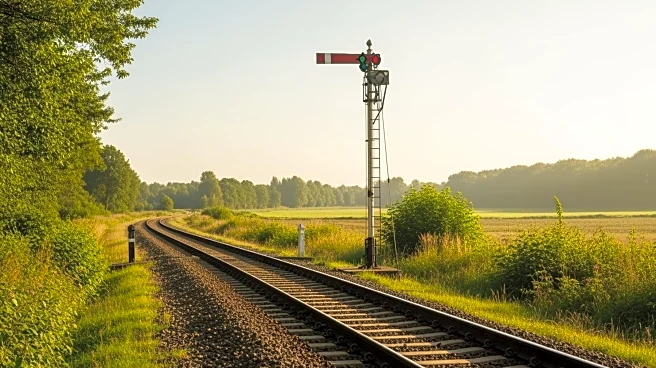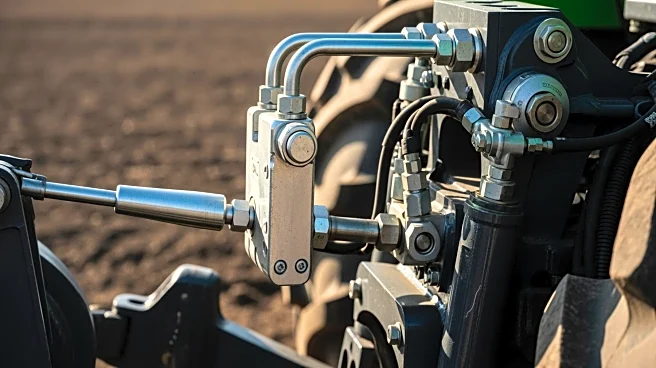What's Happening?
Indiana has enacted House Enrolled Act 1461, providing state tax credits for rail infrastructure improvements and new projects in rural counties. The legislation offers up to 50% in tax credits for short
line railroads and businesses investing in rail maintenance and expansion. The initiative aims to enhance rail infrastructure safety and competitiveness against other freight transportation modes. The tax credits are expected to spur economic development in rural areas by encouraging investment in rail infrastructure, which is crucial for small railroads competing with taxpayer-subsidized trucking infrastructure.
Why It's Important?
The introduction of these tax credits is significant for Indiana's rural economy, as it supports the growth and competitiveness of small railroads. By improving rail infrastructure, the state aims to attract businesses that require reliable transportation options, potentially leading to job creation and economic growth in rural communities. The legislation also addresses the disparity in infrastructure funding between railroads and other transportation modes, providing a more level playing field for railroads to compete.
What's Next?
With the tax credits now in place, small railroads in Indiana are expected to increase their investments in infrastructure improvements and expansion projects. This could lead to enhanced service reliability and customer confidence, further boosting economic activity in rural areas. Stakeholders, including economic development agencies and local governments, will likely collaborate to maximize the benefits of the tax credits and attract new businesses to the region.









